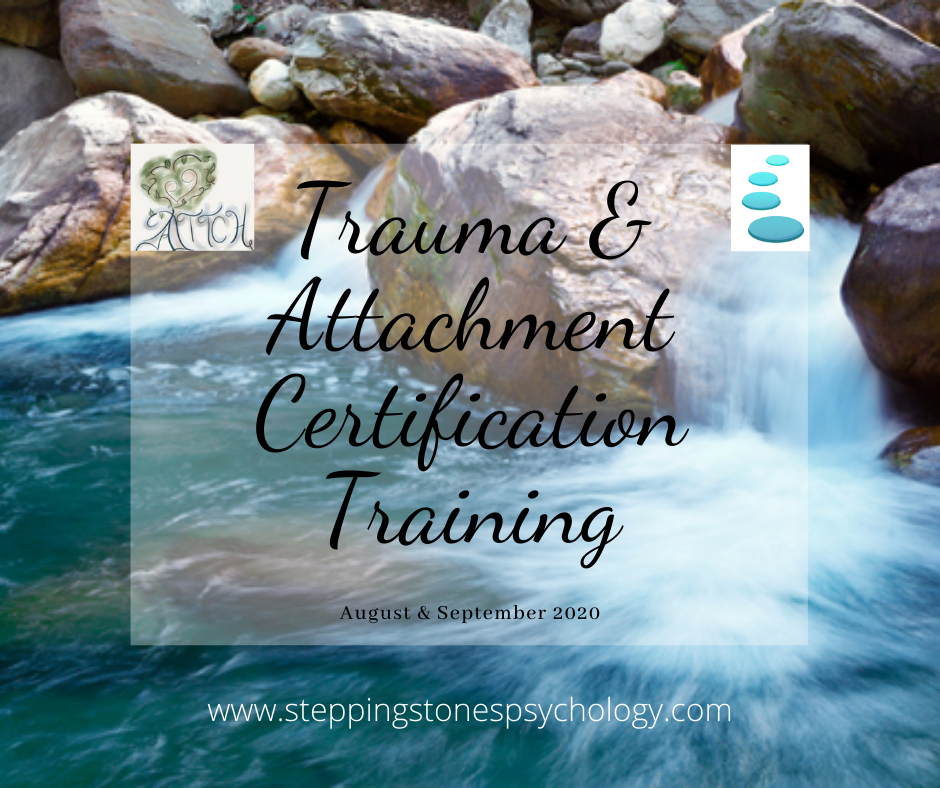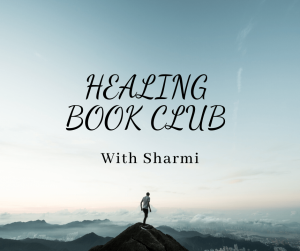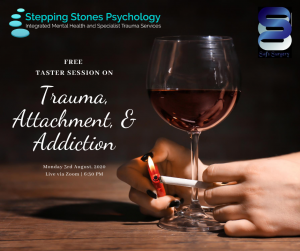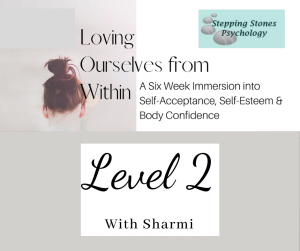This training will be suitable for any clinicians, psychologists, therapists, counsellors, coaches, mental health professionals, well-being practitioners, and anyone working in the field of wellness and healing. You may already be experienced working with trauma and like to expand your skills and knowledge. Or, you may be someone who likes to either specialise in trauma work or develop some skills and understanding when it comes to trauma work, but don’t know where to start. Then this will be the training for you!
We are so proud and pleased to be able to offer a very unique trauma and attachment training here in the UK as a host agency. This training will be delivered by the well-reputed Attachment and Trauma Treatment Centre for Healing (ATTACH). It will be an embodied approach that will consider the neurological, physiological, biological, emotional and psychological impact of trauma, and when working with trauma healing. As far as we know, we have no certification training like this in the UK. It is Sharmi’s mission to shift the limited approaches we have in the UK when it comes to trauma therapy and we are so excited that Lori from Canada has agreed to offer this to us. This training will be offered online, which means it will be accessible to the global community (UK time zone).
Date and Time: Part 1: August 27-28, 2020 12:00pm-7:00pm / Part 2: September 23-25, 2020
A message from Attachment and Trauma Treatment Centre for Healing (ATTACH):
UK Trauma & Attachment Certification Series
ATTCH is pleased to be offering a live online certification series for those of you in the UK! This will be a 2 part training to break up time on the computer. Part 1: August 27-28, 2020 12:00PM-7:00PM Part 2: September 23-25, 2020. This comprehensive training will cover the following topics and allow you to take your trauma processing to a deeper level:
- Understanding the foundations (including neurological, social, physiological, and psychological implications of trauma and attachment dysregulation)
- Phase-based clinical applications to promote healing and integration of trauma and attachment dysregulation
- Practical application of trauma processing activies
- Demonstration of trauma processing
- A variety of integrative trauma treatment tools and skills to enhance your trauma treatment toolkit
- Strategies to promote helper self care and prevent compassion fatigue
Day 1: Foundations of Trauma and Attachment (core CTIP & CTIC training)
Day 2: Phase-Based Clinical Applications to Promote Healing and Integration of Trauma and Attachment Dysregulation
Day 3: Trauma Processing Demonstration and Applied Practice Part 1
Day 4: Trauma Processing Demonstration and Applied Practice Part 2
Day 5: Trauma Processing Demonstration and Applied Practice Part 3
Clinical Trauma Integration Training Training Content:
Days 1 & 2: Day 1 Understanding the Foundations of Trauma and Attachment, Day 2 Phase-Based Clinical Applications to Promote Healing and Integration of Trauma and Attachment Dysregulation and Day 3 Trauma Processing Experiential (description below)
with Lori Gill, Founder and Lead Trauma Therapist, Attachment and Trauma Treatment Centre for Healing
The fields of attachment and trauma research and intervention are growing rapidly. It is apparent that this is an area all clinicians can benefit from training in as it crosses all sectors and populations in some manner. However, we know that it can be difficult to keep up with all of the readings and resources. As this is our area of specialization, let us share what we have learned through our literature and research reviews and what we have effectively put into practice with you in an engaging and practical manner. This comprehensive two-day training will provide insight into current trauma, attachment, and neuroscience research ensuring an understanding of critical information and best practice strategies for working with trauma. This training will also help you to enhance your clinical skills and learn how you can add trauma regulation and attachment healing strategies to your repertoire.
Day 2 will focus on putting it into practice. Through this Integrative Trauma and Attachment Treatment Model (ITATM) participants will learn how to make historical connections, engage in integrative trauma-specific treatment approaches, and promote resiliency and wellness. Participants will learn about phase-based treatment of complex trauma and review of best practice and evidence-based approaches will also be experienced.
Upon completion of training participants will have a strong understanding of:
Trauma-Informed Care
- What it means to be trauma-informed at an organization, service system and societal level
- Core principles, guiding values and common language of trauma-informed care
- Understanding what is helpful vs. what is harmful
- The difference between trauma-informed and trauma-specific services
- Understanding top-down, bottom-up and integrative trauma treatment modalities
The Neuroscience of Trauma, Addictions, Mental Health and Violence
- How stress and trauma affect the brain, body and behaviour
- The role of attachment in self-regulation and the capacity for relationship
- The impact of attachment injuries on child development and adult health outcomes
- Attachment dynamics in health care and human services work
- The connection between trauma, addictions and violence
- The importance of worker self-regulation and self-care in providing attunement, therapeutic presence and co-regulation for clients and in mitigating the effects of compassion fatigue and vicarious trauma
Sensory Regulation
- Why trauma is a sensory experience
- Recognizing the signs of emotional and physical dysregulation
- Integration and how this relates to emotional and physiological regulation
- The use of sensory approaches to promote regulation and integration
Boundaries, Self-Compassion, and Healthy Relationships
- How trauma disrupts our boundaries and how we can learn to establish healthy boundaries
- Addressing unmet needs
- Shifting from false refuges to those that provide effective regulation
- The importance of self-compassion for forming and maintaining healthy relationships
- Differentiating intimacy from abuse
Day 3 Trauma Processing Experiential & Applied Practice Part 1
This workshop takes participants through the trauma processing practices introduced in the core training. This workshop takes participants through experiential of our Integrative Trauma and Attachment Treatment Model (ITATM) from start to finish and includes various techniques (from brief assessment, grounding, trauma processing, somatic discharging and shifting affect for completion of session in an emotionally regulated manner). Participants will experience various experiential activities inclusive of a live demonstration and the opportunity to practice techniques learned (as both the counsellor and the client) in a partner format with guidance from the facilitator. This experiential days allows for discussion, questions, and reflections from participants at a deeper level as it is facilitated in a small group format.
Days 4 & 5 Trauma Processing Experiential & Applied Practice Part 2 & 3
This workshop takes participants through the trauma processing practices introduced in the core training. This workshop takes participants through experiential of our Integrative Trauma and Attachment Treatment Model (ITATM) from start to finish and includes various techniques (from brief assessment, grounding, trauma processing, somatic discharging and shifting affect for completion of session in an emotionally regulated manner). Participants will experience various experiential activities inclusive of a live demonstration and further opportunities to practice trauma processing (as both the counsellor and the client) in a partner format with guidance from the facilitator. This experiential days allow for discussion, questions and reflections from participants at a deeper level as it is facilitated in a small group format.
All days will be rich with research, practical examples, case studies, experiential activities, and opportunities for self-reflection.
What People are saying about our certification and conference events:
Danielle Alexandria, Toronto, Ontario: “I’m currently completing my certified trauma integration practitioner training through ATTCH. Lori Gill, the director, is an incredibly gifted teacher. Her knowledge, intelligence, integrity, and compassion make her a rare and very bright light in the industry. I have been blown away by what I’ve learned! If you’re interested in learning the latest and most effective trauma therapies, I recommend their courses and programs without hesitation!”
Jennifer Bolt Bauline, NL – Very informative, excellent take away and a wonderful presenter.
Shannon Vanderveen, St.Anns – Really grateful for this learning opportunity, networking with others and taking time to grow as a young student! Thank you!!!
Valerien Lannan, Placentio NL – What an amazing week. I have learned so much for both myself and the children + youth i serve. i am very grateful for this experience. Thank you!
Seema Sharma, Ontario – Thank you so much for your warm and engaging presence and sharing your expansive knowledge with us. This training has been amazing, I have learned so much as a practitioner and about myself. This lens has truly shifted the way i understand those I serve and hope to support. It feels so right. Thank you so much for the opportunity to do the live demo. It was so experiential and different than I’ve ever experienced. Thank you for creating a space and presence to make me feel comfortable enough to try and engage in it. All the best.
Carol Cowan, St. Catharines, Ontario – The Trauma and Attachment Certification provided by Lori Gill is essential to any practitioner in the field today. The solid foundation and framework provided in the certification is fundamental to understanding many of our clients struggles in their lives today. The certification also provides great tools and techniques that can be used with our clients to provide the profound levels of healing that are required. The conference itself is also a wonderful opportunity to network with other professionals in the field. I look forward to the conference every year and have used the skills and knowledge gained almost daily in my social work practice.
Christine – Attended the 5 day trauma and attachment certification training and truly loved every minute. the information and psycho education was very helpful and the live demos of clinical process and experiential/role play was extremely powerful and helpful in integrating the new information and trauma processing. Thank you again Lori and the ATTCH team, Sue, and Lisa. A very healing and inspiring experience.
General comments from some of our conference evaluations:
“Looking forward to tomorrow.”
“Doing the role-play was eye-opening and fast.”
“An incredibly valuable learning experience. Each session with Lori I leave with extended resources, practice, and theoretical knowledge.”
Learn more and register via the linked paper registration form or online using the purchase options below .
Prerequisites for the training:
- Day 1 only – This is open to anyone seeking to become trauma-informed
- Part 1 (Days 1 & 2) – This is open to anyone, but will be ideal for those working in clinical or holistic wellness roles
- Part 2 (Day 3-5) – This is only open to clinicians and a graduate degree in Psychology, Social work or a related field is required
Cost:
- Full 5-day training – £750/€830 (+ 13% VAT)
- Day 1 only – £300/€330 (+ 13% VAT)
- Part 1 (Days 1 & 2) – £405/€445 (+ 13% VAT)
- Part 2 (Days 3-5) – £580/€700 (+ 13% VAT)
Please contact Sharmi to register: contact@steppingstonespsychology.com




